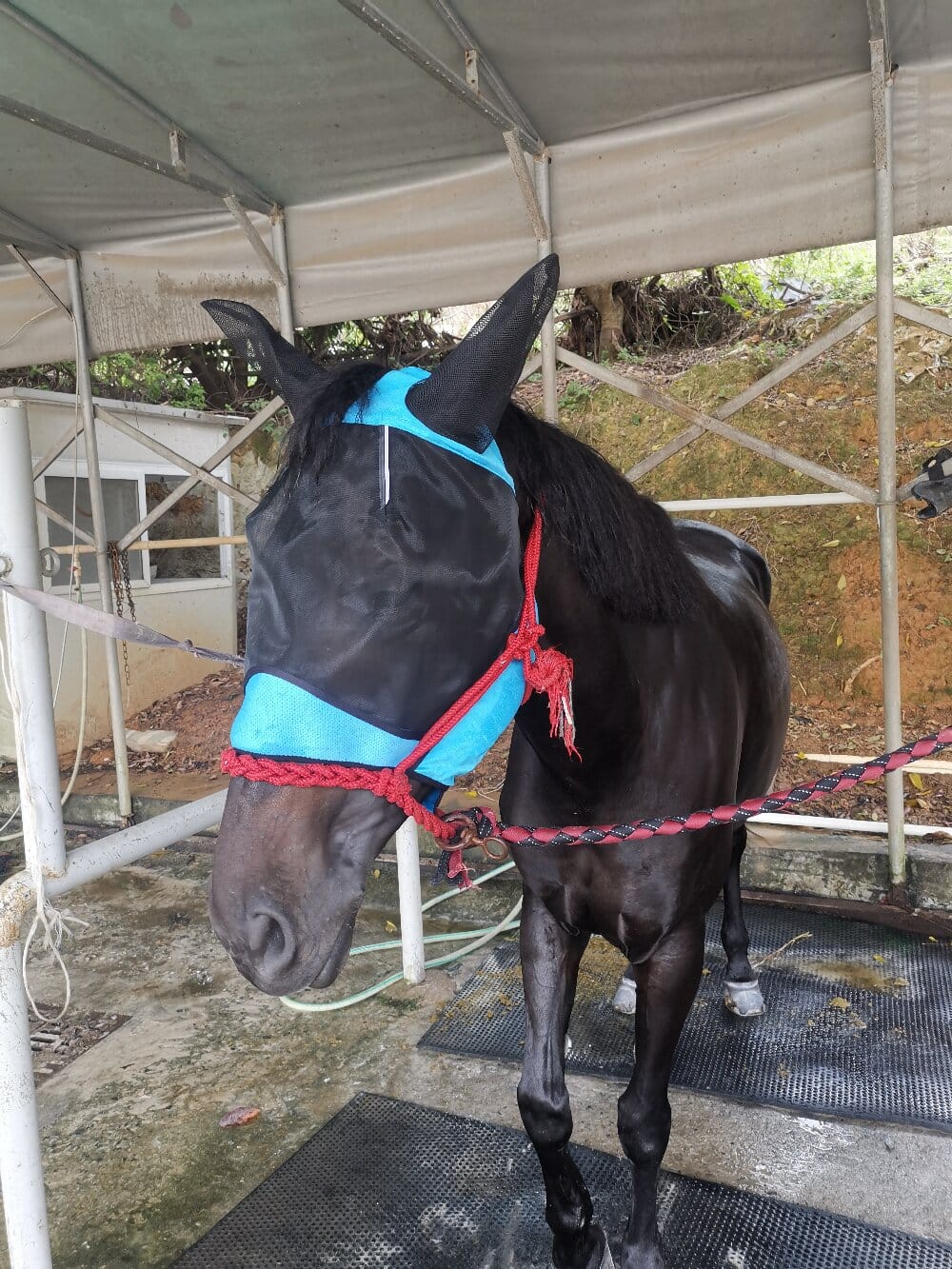To the uninitiated, a horse fly mask might appear as a curious, almost comical piece of equine attire, a mesh veil shielding a creature of immense power and grace. Yet, to those of us who share our lives with these magnificent animals, this simple piece of gear is so much more than a physical barrier. It is a quiet testament to a profound cultural shift in our relationship with horses, moving from mere utility to one of deep empathy and conscientious stewardship. It represents our modern commitment to their comfort and well-being, a small but significant symbol of how we choose to care for our equine partners.
The primary function of a fly mask is undeniably practical. Flies are more than a simple annoyance; they are a source of genuine distress and potential health issues for a horse. The constant buzzing, the biting, the crawling around sensitive eyes and ears—it can drive even the most patient animal to a frenzy. A well-fitted fly screen provides a crucial defense, preventing insects from irritating the eyes, which can lead to conjunctivitis, and from feasting on the delicate skin of the face. It’s our first line of defense against the seasonal onslaught, a shield that grants them peace as they graze in the summer sun.
The Cultural Lens of Equine Care
Historically, the lot of the working horse was one of toil, with little consideration given to such creature comforts. The very existence of a specialized product like a fly mask speaks volumes about our evolving ethos. We no longer see horses as tools or simple beasts of burden but as sentient beings deserving of a life free from preventable discomfort. This cultural perspective is rooted in a broader, more compassionate understanding of animal welfare. Investing in protective equine gear like this is a conscious choice, a small daily ritual that says, “I see your discomfort, and I will alleviate it.” It’s a language of care that transcends words.
A Symbol in the Field: More Than Just Mesh
Observing a pasture of horses, you can often tell the concerned owner from the absentee one. The horse sporting a fly mask is a horse whose human is paying attention. It’s a silent badge of diligent ownership. This simple act of applying a protective face covering for horses is a gesture that fosters a deeper bond. The horse learns to associate its human with relief from torment, building trust with every gentle placement of the mask. It becomes part of a daily dialogue of mutual respect, where we acknowledge their vulnerabilities and act as their protectors.
Choosing the Right Guardian: A Matter of Respect
Selecting a fly mask is not a task to be taken lightly. It is an exercise in understanding the individual needs of our horse. We consider the fit—it must be snug enough to stay on without rubbing, yet loose enough to allow for comfortable chewing and head movement. We look for features like UV protection for horses with light-sensitive eyes or pink noses, shielding them from the sun’s harmful rays as effectively as it does from insects. The choice of material, the durability of the stitching, the ease of cleaning—all these factors are weighed with care. It is a purchase made not out of obligation, but out of a genuine desire to provide the best possible defense against the elements.
In the end, the horse fly mask is a powerful, understated icon. It is a practical solution born from necessity, but its continued use is fueled by love and respect. It signifies a world where we are constantly seeking better ways to ensure the comfort and happiness of the animals that give us so much. It is a small, mesh declaration that in our fields and in our hearts, their well-being is our paramount concern.

